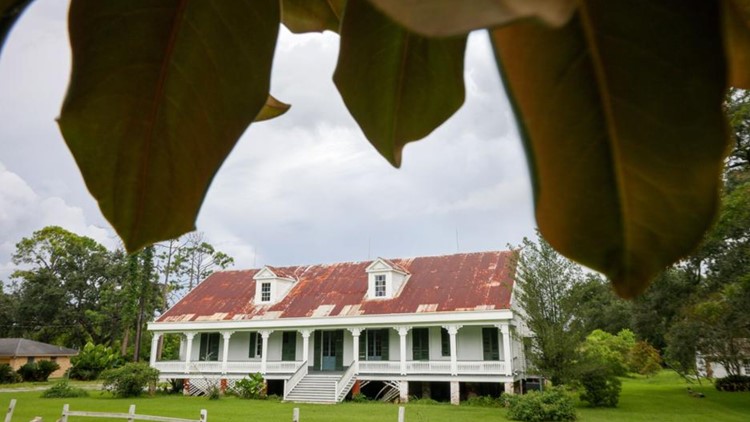LAPLACE, La. — One of the largest slave revolt plantations in American history is Black-owned for the first time.
Over 200 years ago, scores of slaves escaped a plantation in LaPlace and marched along the Mississippi River toward New Orleans. Now the land once used for the uprising, is owned by the Black-led nonprofit The Descendants Project, according to our partners at Nola.com.
Last week, officials with The Descendants Project announced that they officially acquired the 1811 Kid Ory Historic House on Jan. 12 which is almost exactly 213 years after the 1811 slave revolt that made the former plantation renown.
Founders and twin sisters Dr. Joy and Jo Banner delivered the news on Feb. 15 outside of what used to be the main house of the Andry Plantation – the starting point of the 1811 revolt.
"This is an extremely important historic site to this legacy of resistance," Joy Banner said during a livestream of the announcement.
The Descendants Project was founded to preserve and protect the health, land and lives of the Black descendant community located in Louisiana's River Parishes. The Banners said that the mission has sparked different initiatives, " from efforts to protect the burial grounds of the enslaved to, most recently, opposing river parish industrialization projects like the Wallace grain elevator."
"Throughout St. John the Baptist Parish, important sites like this one were in danger of being erased," Joy Banner said. "We believe that preservation of these sites is more important than ever because of the attacks on Black history in our education system in particular. Sites like these will have to be the ones telling these stories."
According to Nola.com, plans for the property are still forming, but the Banners said they hope to use the space as a "cultural institution of education" while highlighting and celebrating the lives of those who were enslaved on the plantation.
They said they also plan on doing "archaeological and genealogical projects on plantation grounds, where they said they believe historical artifacts and information could still be found."
WWL Louisiana partners said the site will likely continue to feature the exhibit dedicated to Edward "Kid" Ory, a pioneering jazz trombonist who was born on plantation grounds, inspiring the property's most recent use as a dual-purpose museum chronicling the 1811 uprising and Ory's life.
The Banners said they would like the input of the local Black community on the plantation's future uses.
"I know a lot of times we see properties like this used for bachelorette parties or used for banquets and all of that," Jo said. "This plantation will not be used for that."
► Get breaking news from your neighborhood delivered directly to you by downloading the new FREE WWL-TV News app now in the IOS App Store or Google Play.



